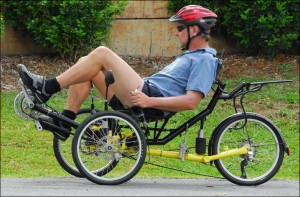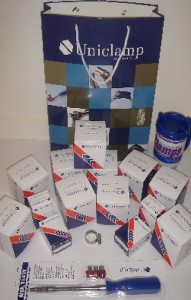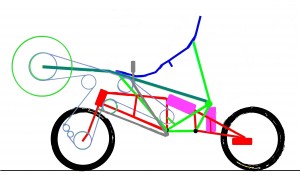As I write this, I am on holidays – something that also won’t be the case by the time you actually read this!
In addition to doing four AutoSpeed stories, I’ve been spending the time cudgelling my brains over my upcoming Human Powered Vehicle project – a front-wheel drive, delta (two rear wheels, one front), recumbent, leaning trike.

I’ve looked through the articles I’ve previously done in AutoSpeed on recumbent pedal trikes (including the tadpole trike pictured above), and have been furiously scanning the web.
Recumbent bikes (where the rider sits back in a reclined seat, the pedals in front of him or her) make up only a tiny minority of bikes worldwide.
Recumbent trikes make up a small minority of that tiny minority – and recumbent, delta, leaning trike designs can be counted on the fingers. Of two hands.
Thus web searches have tended to return to the same sources, taking any one of a number of routes to get there.
As a result of the small number of web pages dealing with this topic, I have had a chance to re-read my posts to an online recumbent bikes/trikes forum, one that has a specific area for homebuilders. Before I was banned, I was almost pleading with those who had developed recumbent trikes to do some testing and measurement of their machines’ performance, so that the tiny community of scattered builders around the world could actually compare designs and see which approaches were best.
Seems an obvious request, but it was met with refusal.

 Julian Edgar, 50, has been writing about car modification and automotive technology for nearly 25 years. He has owned cars with two, three, four, five, six and eight cylinders; single turbo, twin turbo, supercharged, diesel and hybrid electric drivelines. He lists his transport interests as turbocharging, aerodynamics, suspension design and human-powered vehicles.
Julian Edgar, 50, has been writing about car modification and automotive technology for nearly 25 years. He has owned cars with two, three, four, five, six and eight cylinders; single turbo, twin turbo, supercharged, diesel and hybrid electric drivelines. He lists his transport interests as turbocharging, aerodynamics, suspension design and human-powered vehicles.



